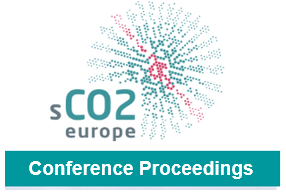The European sCO2 Conference
Aims and Scopes
The Conference Proceedings of the European sCO2 Conference publishes high quality research and review papers on novel aspects of supercritical carbon dioxide (sCO2) technologies in the energy sector for academia and industry.Related to Energy Systems the Papers reporting work on Heat Exchanger and Transfer, Turbomachines and Cycles, sCO2 Applications and Energy Systems, sCO2 Experiments and Loops, and Fluid and Material Aspects.
You can find further information here
Background and Topics
The European sCO2 Research & Development Alliance aims at providing a platform for exchanging knowledge on supercritical carbon dioxide (sCO2) technologies in the energy sector for academia and industry,
as well as promoting this topic in society.
Supercritical Carbon Dioxide (sCO2) technology is an innovative concept in power generation, which employs CO2 in supercritical state as working fluid in closed-loop Joule-Brayton cycles.
Unlike conventional power generation, sCO2 power systems would ensure security and flexibility of electricity supply at lower capital and operational costs with a reduced carbon footprint.
The European Conferences on Supercritical CO2 (sCO2) were initiated in Vienna in 2016.
Conference Topics (related to Energy Systems)
- Heat Exchanger and Transfer
- Turbomachines and Cycles
- sCO2 Applications and Energy Systems
- sCO2 Experiments and Loops
- Fluid and Material Aspects
Organisation
Conference committee, including the following members:
Dieter Brillert, Universität Duisburg-Essen, Chair of Turbomachinery (conference chair)
ORCID iD https://orcid.org/0000-0002-5025-9163
Albannie Cagnac, EDF R&D, Fluid Dynamics, Power Generation and Environment Department
Václav Dostál, Czech Technical University in Prague (local conference organizer)
ORCID iD https://orcid.org/0000-0001-7832-7976
Otakar Frýbort, Research Centre Řež, Energy Technology Department
Uwe Gampe, Technische Universität Dresden, Chair of Thermal Power Machinery and Plants
Markus Haider, Technical University of Vienna, Institute for Energy Systems and Thermodynamics
Rene Pecnik, Technical University of Delft, Department of Process and Energy
ORCID iD https://orcid.org/0000-0001-6352-6323
Jörg Starflinger, University of Stuttgart, Institute of Nuclear Technology and Energy Systems (IKE)
ORCID iD https://orcid.org/0000-0002-2004-927X
Teemu Turunen-Saaresti, LUT University, School of Energy Systems
ORCID iD https://orcid.org/0000-0001-6560-5762
Andreas Werner, Technical University of Vienna, Institute for Energy Systems and Thermodynamics
Marco Astolfi, Energy Department of Politecnico di Milano
ORCID iD https://orcid.org/0000-0001-6311-8362
The local organisation team manages the conference venue, including accommodations and hotel recommendations as well as traveling advices. The team is led by one of the general committee team members.
The general committee team, on the other hand, arranges the paper review process, registration, the agenda preparation and manages external contacts and the committee's representation, which also includes the website.
For more information see the conference website

